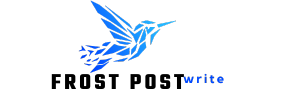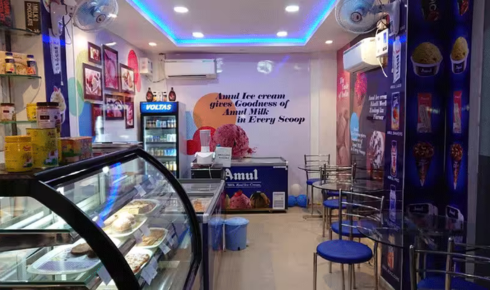1. What is digital overload?
Digital overload refers to the feeling of being overwhelmed by the sheer volume of information, notifications, and digital devices we interact with daily. It can lead to stress, burnout, and reduced productivity.
2. How can I identify if I’m experiencing digital overload?
It suggests anxiety when trying to check on emails or notifications, mental fatigue, feeling distracted by devices at non-work times, and the inability to concentrate on work because of constant interruptions.
3. How can I minimize digital distractions?
Turn off essential notifications; use applications that block distracting sites; have a no device zone in your home; and create time within your schedule to check your emails or social media.
4. How can I control the flood of notifications?
Limit notifications: Allow notifications only from essential apps. Schedule specific times to check social media, email, and messaging apps. Most smartphones and apps have options to customize notification settings to avoid constant interruptions.
5. How can I reduce my screen time without feeling disconnected?
Use screen time trackers to monitor and set limits. Replace some digital activities with non-screen alternatives, such as reading a book, taking a walk, or having face-to-face conversations. Set specific “tech-free” times, such as during meals or before bed.
6. What are some strategies for improving focus in a digital world?
Practice the Pomodoro technique: Work in short intervals, such as 25 minutes, and break afterwards. Focus applications or website blockers, turn off unneeded notifications, and create an isolated workspace free from digital distractions.
7. How do I prevent work-related email and messages from seeping into personal life?
Define clear working hours: Agree with your colleagues and clients about the time when you will respond to emails or messages. Switch off the work email notification after working hours, and try not to open them unless really necessary.
8. Do I need to check my phone at the first morning bell?
No, it’s best to avoid checking your phone immediately after waking up. Instead, start your day with a mindful or productive activity like stretching, journaling, or planning your day. This helps set a positive tone without overwhelming yourself with digital information.
9. How can I manage social media usage and prevent burnout?
Set time limits for social media use, use apps that track or limit your usage, and be mindful of the content you consume. Follow accounts that inspire or provide value rather than engaging with negative or overstimulating content. Consider taking regular social media breaks.
10. How can I create a digital detox routine?
Schedule tech-free time: Choose one day a week or certain hours during the day (such as evenings or weekends) to go without screens. During this time, engage in offline activities like reading, spending time in nature, or practicing hobbies.
11. What are the benefits of digital detoxing?
Benefits include improved mental clarity, better sleep, increased productivity, more quality time with loved ones, and reduced stress levels. A detox can also help you reconnect with your own thoughts, emotions, and creativity.
12. How can I manage the information overload from news and media?
Curate your sources: Instead of following so many news sources, settle on just a few trustworthy news sources, avoiding the trap of overloading with endless news cycles. News aggregator apps should enable you to determine which topics to follow. Try to dedicate some specific times of the day for checking the news rather than always consuming it.
13. How does mindfulness assist in managing digital overload?
Practices such as meditation or deep breathing can reduce the stress levels in your mind, improve concentration and help focus.
Being present with technology and doing things with purpose can help not feel overwhelmed, clear mental clutter.
14. How do I declutter my digital life, files, emails, apps?
Organize and prioritize: Delete unnecessary files, unsubscribe from irrelevant emails, and sort important emails into folders. Regularly clean out apps you no longer use and organize your devices for easy access. Archive or delete old messages and documents you don’t need.
15. How can I improve my digital well-being on social media?
Set intentional goals: Determine what you want from social media (such as keeping up with friends or following educational content). Spend less time in apps and read accounts that reflect your values. Engage intentionally, rather than simply scrolling or comparing.
16. How is digital overload affecting my health?
Digital overload can lead to increased stress, anxiety, sleep disturbances (particularly due to exposure to blue light), burnout, eye strain, and mental exhaustion. It can also negatively impact relationships by reducing face-to-face interactions.
17. How can I use technology to help manage digital overload?
Use productivity tools: Apps like Todoist, Notion, or Trello will help you organize your tasks and how to manage time. Distracting apps or websites can be filtered out with Freedom or Cold Turkey, which focus for you. Set reminders on periods for breaktime or exercise.
18. What is “digital minimalism,” and how can it help?
Digital minimalism is about intentionally reducing your digital footprint by eliminating unnecessary tech, apps, and subscriptions. Focus on the digital tools that truly add value to your life and remove distractions that drain your time and energy.
19. How can I establish a healthy relationship with technology?
Set clear boundaries: Create rules for when and how you use technology. Use it to support your goals and values, not as a source of distraction. Practice mindful tech use by being present in your interactions and avoiding mindless scrolling.
20. How can I ensure that my digital habits don’t negatively affect my relationships?
Set “tech-free” zones or times for family or partner interactions, such as meals or bedtime. Actively listen and be present with others. Limit the use of devices in social settings or in time with one’s loved ones to form stronger relationships.
In summary, you can recover your time, improve your mental well-being, and lead a more intentional and balanced life in this digital age by being proactive in managing digital overload.













